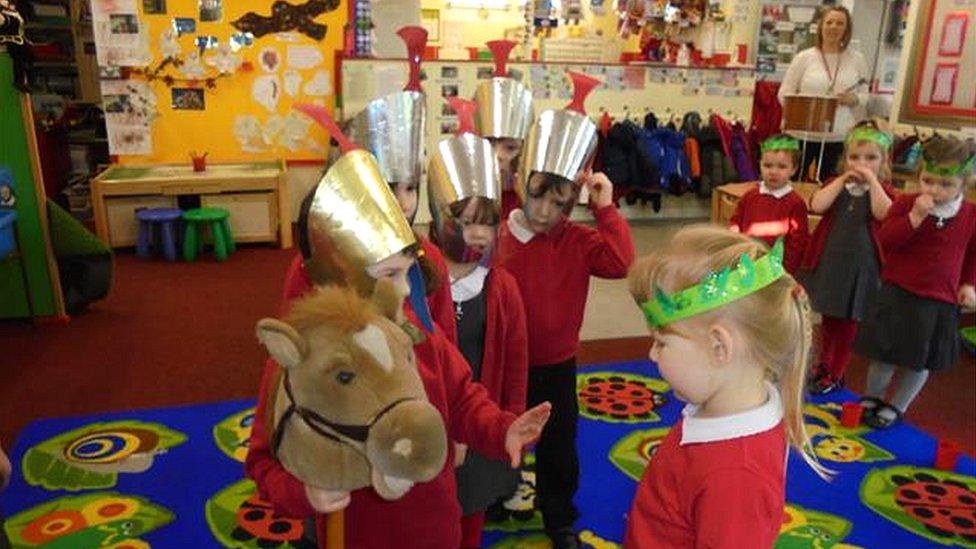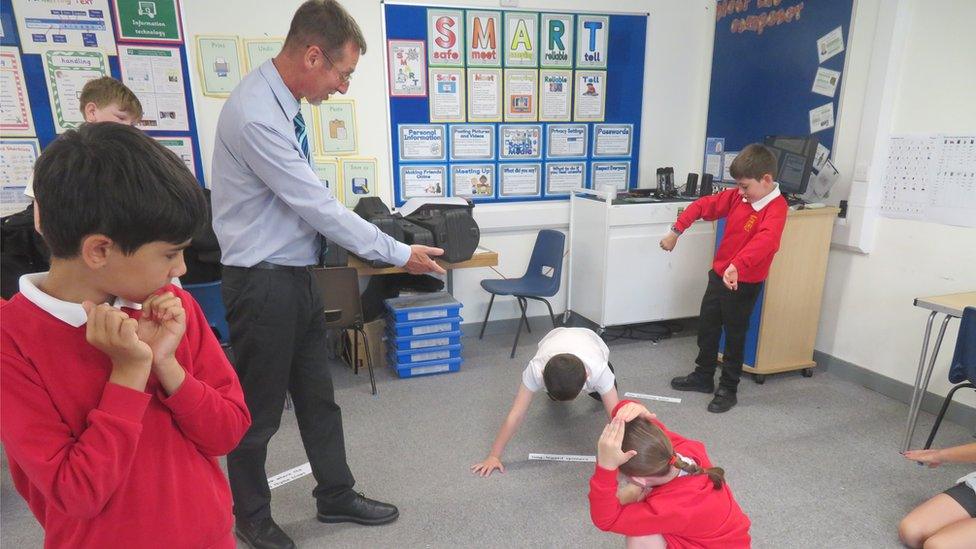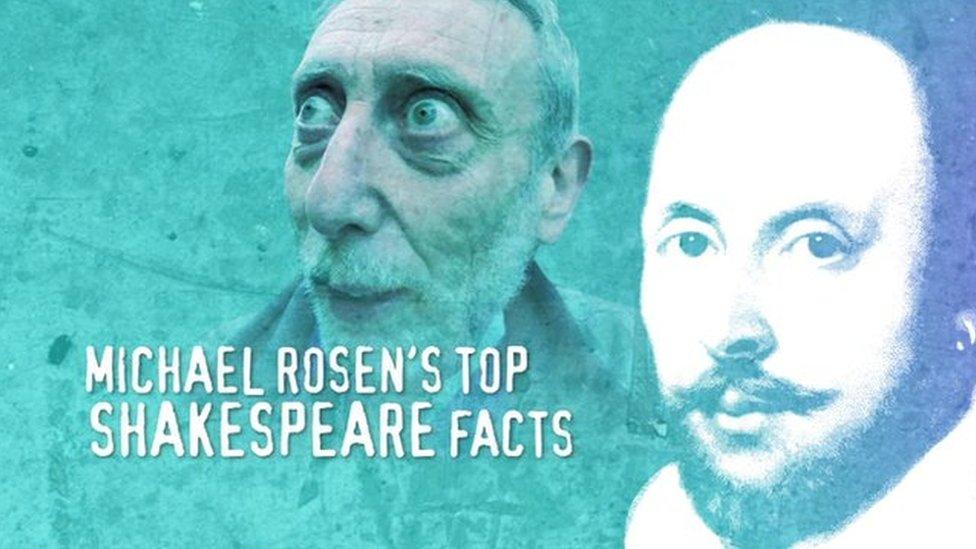Do you use Shakespearean words in normal conversation?
- Published
- comments

Children from one primary school appeared in Romeo and Juliet at Blackpool Grand Theatre as part of the RSC programme
Have you ever described yourself as being 'bedazzled', 'uncomfortable', or 'in a pickle'?
Well if you have, you would have been using language created by playwright William Shakespeare.
These words are now so commonly used, few people are aware that this is where they come from - but now some children are starting to use even more unusual Shakespearean words.
After studying one of Shakespeare's plays at school, one nine-year-old girl told her teacher: "I'm absolutely sluggardized," to show how exhausted she felt.
Her school had the chance to learn and study the famous plays after the Royal Shakespeare Company (RSC) partnered with small number of schools across England.
So far the the RSC programme is in 26 areas, including North Staffordshire, Blackpool, Newquay and Hull.
In the future many other children will also have the same chance, with the scheme about to expand to five new locations.
The company will work with pupils in Skegness, Coventry, Peterborough, Corby and Hartlepool to help them become more familiar with Shakespeare's work.
Why Shakespeare really is for everyone
In a pickle
Green-eyed monster
Bedazzled
Cold-blooded
Rant
Assassination
Fashionable
Obscene
Addiction
Zany
Arch-villain
Eventful
Inaudible
Manager
Swagger
Uncomfortable
Belongings
Do you often use words that come from Shakespeare?
How has the RSC schools programme been helping?

Children acting out a scene from Julius Caesar, when he returns from battle
The programme reaches 135,000 children and young people each year, in different ways for different age groups.
The learning isn't just done by sitting down in a classroom either.
The RSC trains the teachers in techniques used by actors and directors in rehearsals, so they can help the children through acting, exploring characters and their language choices, and getting behind the words to find their meanings.
Nursery school children might be shown a picture of Julius Caesar and told he's just won a battle. They march around as soldiers and talk about how their characters could be feeling at that moment.
For older children a teacher might introduce them to A Midsummer Night's Dream with different words on the floor that could describe a forest. The children talk about those words and begin to add their own.
RSC actors also perform in the schools as well as at local theatres which are also involved in the programme.
Headteacher Brian Anderson said it had had a direct impact on his children's language development and literacy.
He told the BBC: "The quality of their writing has really developed. The children really get a feel for the world of the play. When they go into the classroom to do the writing, it's easier."
The children cheer when we say we're going to do some Shakespeare work
The aim of the RSC's Associate Schools Programme aims is to help children who might not have as many opportunities as others.
For this reason they often choose areas where the option to take part in culture and art is hard to come by, and people tend to perform more poorly in school and work than in other parts of the country.
It also aims to show them the many job opportunities possible in theatre, both on stage and off.

Head teacher Brian Anderson helps pupils create a "word carpet" from A Midsummer's Night Dream, that describe a forest
Some of the teachers taking part have spoken of how Shakespeare is transforming the lives of children, including pupils who often struggle with language.
Jacqui O'Hanlon, the RSC's director of learning and national partnership, explained: "The language development of a child by age five is still the greatest predictor of whether that child can escape poverty in later life."
The RSC programme is about introducing children to the richness of Shakespeare's language. She says they "get really curious about the possibilities of the meaning of particular words, rather than finding them scary or confusing".
Time and again it's the children who have struggled with reading and writing who are absolutely captivated by these plays.
Do you like the idea of the RSC programme? Let us know in the comments, as well as what Shakespearean words you use
- Published21 April 2016

- Published8 November 2023

- Published18 March 2015

